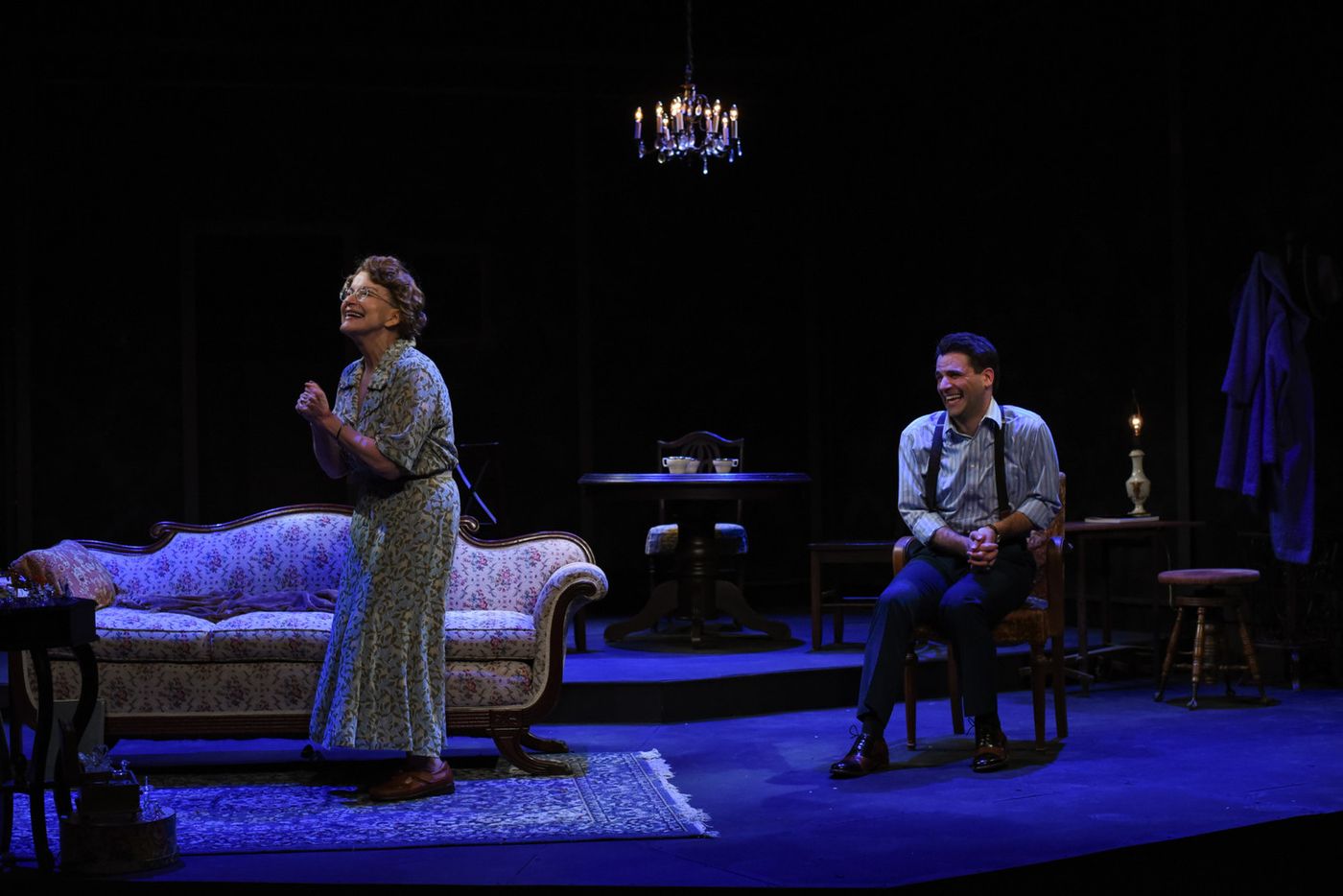Review: THE GLASS MENAGERIE Lifts A Veil On Memories At Warehouse Theatre

What's your first memory of The Glass Menagerie? Were you forced to read it in high school? Did you see a college or community theatre production? Maybe you just somehow know of it because it's right there, in our cultural memory, that fragile glass unicorn ready to topple over at the slightest provocation.
For me, it was a college production. I ran lights. Or was it sound? I know I was in the booth, watching every performance. I vividly remember opening night when one of my best friends, playing Tom, started coughing after his first line, because he'd unwisely chosen to smoke Camel unfiltered cigarettes on stage and a piece of tobacco dropped into the back of his throat after he took his first dramatic puff. I'm sure there were only two or three coughs before he regained his composure, but it sure felt longer. In my memory it was pivotal and seemingly endless. Or was it? Maybe it's just because we loved to tell the story of that coughing fit that I even remember it at all.
Funny thing about memory. Some things that seem so clear, so true, can still remain foggy at the edges. And sometimes the clearest memories are the ones we'd rather forget.
Maybe that touches on why The Glass Menagerie - Tennessee Williams' self-proclaimed "memory play" - continues to resonate. It's the story of a family, as seen through the eyes - through the memory - of a haunted young man named Tom Wingfield. And, more specifically, it's about a night Tom would rather forget.
In the Warehouse Theatre's new production, Tom, the young man with tricks in his pocket, is played by Thomas Azar. He opens the play by literally raising a curtain on his past. There we see his home - an urban apartment with decor befitting the deep south matriarch that is his mother, Amanda (Mimi Wyche). But it's only a glimpse, not a whole realistic set. It's just the important parts - just the most memorable parts. We also meet Tom's fragile sister, Laura (Kathryn Hinton) and, ultimately, a Gentleman Caller (Drew Whitley) who undoes the final string holding the family together.
Director Kerrie Seymour and her set designer, Michael J. Riha, combine metals and fabric to create a sort of soft prison, evocative of the way Tom seems trapped inside his own memory of that fateful night. Similarly, Seymour has the characters eat from empty plates and sip from empty cups, stripping away unnecessary - and unremembered - detail to focus on the emotions that are, after all, the primary lens through which we see often see memories.
As Tom, Azar is primarily sharp tongued and bitter, with only occasional flashes of humor. As Tom says in the play's introductory moments - explicitly telling us this that this play is memory - he has a poet's weakness for symbols, and that the characters themselves are symbols. And so Tom himself is a symbol of an angry young man trapped in his own circumstances, longing to escape. Azar plays up that entrapment, plays up that symbol, the caged animal yearning to break free.
Mimi Wyche, as Amanda, is soft, flirty and sometimes even childlike. Her southern accent feels accentuated, almost a breezy affectation she wears as easily as her flowing gown. Wyche's Amanda is trapped, too, trapped in her own past even as she refuses to admit she's trapped in the present. Wyche is always wonderful to watch and I was by turns enchanted and intrigued by her unique take on this classic role.
Kathryn Hinton's Laura is soft and warm, as befits the way Tom might remember his beloved younger sister. Her flaws are present, of course, but so, too, is a quiet and unexpected strength. Could it be that Tom is projecting more onto her than was originally there, something to make him feel better about the way it all played out?
And as for the Gentleman Caller, Drew Whitley is the epitome of the tall, self-confident stranger - everything Tom is not. His extended scene with Laura - a sort of trap sprung on him by the Wingfields - is a heartbreaking highlight of the evening.
One aspect of the production that just didn't work for me was the sound design - unusual since sound has so often been a beautifully key and subtle piece of Warehouse shows. For this one, the background city noises were just too loud and distracting, sometimes even drowning out quieter dialogue. And what was that weird recurring whistling? It felt like something that would fit better in a Robert Wilson production. Here it just kept piercing my consciousness and pulling me out of the scene. The music, too, seemed too loud and misdirected. Characters would point to the juke joint across the street but the music supposedly coming from that dance hall came from behind me rather than where characters pointed.
But maybe that's all down to the felicities of memory, the way strange details stand out while others disappear. Tom Wingfield's memories are scattered and painful and the city was just another point of contention. Tom eventually escaped even as his pain remained. And this testament to his memory makes for a powerful evening of theatre, one you'll want to think about and discuss - and remember.
The Glass Menagerie runs January 25th through February 10th at The Warehouse Theatre in Greenville, SC. Tickets are $35 for General Admission and $40 for Reserved Seating. Tickets can be purchased at www.WarehouseTheatre.com or by calling 864-235-6948.
Photo credit: Wallace Krebs
Reader Reviews
Videos

